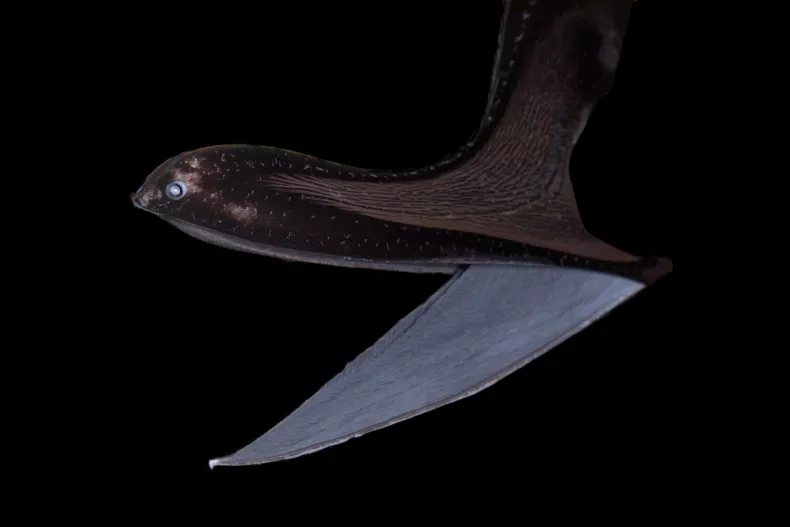The deeper waters are teeming with bizarre and beautiful species. Some of them include a strange eel creature with something like a massive mouth that resembles a pelican's beak.
Based on the Woods Hole Oceanographic Institution, the pelican eel, specifically defined as Eurypharynx pelecanoides, dwells mostly in ocean depths in tropical and temperate locations all over the world, although not on the bottom, preferring ranges around 500 as well as 3,000 meters (1,640 to 9,842 ft).
According to Joel Llopiz, a Woods Hole fisheries oceanographer and young fish biologist, the most intriguing element of this species are its comparatively large, expanded, scoop-like jaw that expands 90 degrees.
As he informed Newsweek, the mechanism allows the eel to consume prey bigger than its size. Whenever a pelican eel sees possible prey, it expands its mouth like a balloon, forming a huge purse that functions like a trap that it might use to devour tiny prawns, squid, or even kelp. As per Llopiz, the largemouth, which might also account for a fourth of the fish's original size, is an especially valuable adaptation while eating in an ecosystem with very few food sources.
Mouth-dropping Facts About Pelican Eel
The Pelican Eel possesses a long, elongated body with a bright apparatus at the tail's tip. Its eyes are small but situated towards the snout. Their enormous jaws include multiple rows of tiny teeth. Their dorsal fin is usually black, with some white line or gap on either side. The particular mutation in the genus Eurypharyngidae is the Pelican Eel. This species is found in Australian seas from the coasts of northwestern Western Australia, northern Queensland, and New South Wales. In adulthood, males endure modifications such as olfactory organ expansion and tooth and jaw deterioration. Females have not evolved much, according to the facts stated by the Australian Museum.
"Whenever one comes across anything within the ocean depths because you don't come across several goods, you'd wish to be qualified of consuming it, and a sensible way to achieve this is by having a wide mouth, which it definitely has developed to have," Llopiz remarked. "[The jaw] enables pelican eels to eat a wide range of prey kinds, providing them with alternatives in a normally food-poor habitat," Llopiz stated.
Whereas this fish, which could also grow to be more than 3 feet long, was dubbed after the pelican, it is now also known as the gulper eel, pelican gulper, or umbrella-mouth gulper, every one of which refers to its incredible mouth-expanding capabilities, as per SeaSky.

A close-up image shows a pelican eel in the deep sea. These creatures can swallow prey larger than their bodies thanks to a large, expandable mouth.
ALSO READ: Bizarre Dragon-Like Fish Pulled From the Depths of the Norwegian Sea Identified
Bizarre Species With Bizarre Traits
This eel species is distinguished by its squinty eyes and then a bioluminescent structure at the apex of its fin. It seems unclear what this bioluminescent organ performs, but it could assist the eel lure prey.
Considering that perhaps the pelican eel isn't the best swimmer, this could be advantageous. Moreover, because of its small eyes, this could rely on eyesight, unlike certain other profound species. "These are most probably at the whim of global ocean circulation, sticking out at their favored temperatures and depths," Llopiz noted.
This eel's lifespan is undetermined. Nevertheless, it seems to expend most of its time constantly searching for a companion. Once males achieve sexual development, their olfactory organs get bigger, allowing them to recognize the fragrance of females.
Interestingly, the males lose their little canines at this period, perhaps because the fish's body is devoting all of its breeding efforts. As per researchers, these eels die quickly the following mating, as per Newsweek.
RELATED ARTICLE: Bizarre Fish-Like Creature That Lived 390 Million Years Ago Could Be the Earliest Ancestors Of Humans, Study Claims
Check out more news and information on Fish in Science Times.














